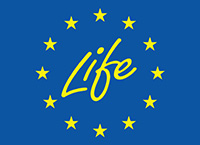Protecting our soils across the EU
In July, the European Commission published its proposal on a Soil Monitoring and Resilience law. As IFOAM Organics Europe, we welcomed the proposal since healthy soils form the corner stone of organic farming. The proposal is the legal recognition of the importance of soils in Europe, giving soil the same status as air and water, already well-regulated in EU legislation.
Organic farming builds soil fertility while protecting biodiversity, ensures water quality, prevents pollution as it does not use synthetic pesticides and fertilizers and stores carbon in soils. We elaborate on these benefits in our recent factsheet. The organic movement therefore highlights the need to recognise organic farming as a farming system that protects and improves soil health.
The proposal is an important step into the right direction, but there are a few aspects that should be strengthened. Synthetic pesticides and fertilizers are not addressed explicitly in the proposal, even though these substances are having a major impact on soil health. Synthetic pesticides are causing soil contamination and pose a threat to soil biodiversity, as do synthetic fertilizers, which negatively impact soil structure too. The importance of soil biodiversity should be better reflected in the legislation by making the consideration of soil biodiversity an essential and mandatory aspect when assessing soil health.
These aspects and others, we have addressed in our feedback to the ensuing public consultation which was opened by the European Commission after the publication of the proposal.
The European Parliament Committees’ votes are scheduled for February 2024 (Agriculture and Rural Development Committee), and later in spring 2024 (Environment, Public Health and Food Safety Committee).
For more information on organic and soil and IFOAM Organics Europe’s work related to this issue:
- Get a visual overview of organic’s many benefits for climate and biodiversity in our infographic,
- Read our factsheet on organic’s benefits for agricultural soils,
- Check out our infographics on soil and biodiversity & climate change, and
- Visit our website or contact [email protected]. Do note that we prioritise our members’ requests.
For information about what you can gain from being a member, read our membership page and contact [email protected].

The work of IFOAM Organics Europe on this topic is co-financed by the LIFE programme of the European Union, under the Climate, Infrastructure and Environment Executive Agency (CINEA). This page only reflects the views of the authors and its sole responsibility lies with IFOAM Organics Europe. The CINEA is not responsible for any use that may be made of the information provided.

